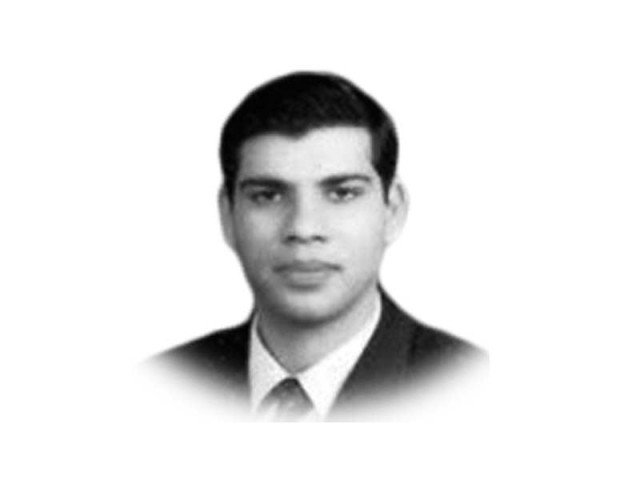Power politics in Pakistan
Military has a very unique association with the political system of Pakistan

The writer is a research analyst and freelance contributor.
If we analyse the political trends prevalent in Pakistan over the past few decades, three major political patterns regarding political-military relations are vividly visible. All three patterns have been followed by the same political characters. The first pattern was total acceptance of a military ruler and open support to the political role of the army. Zulfikar Ali Bhutto was very close to President Ayub Khan and he was the first civilian to be the chief martial law administrator as well. Mian Nawaz Sharif was very close to President Ziaul Haq and many of his critics even say that he was brought into politics by the establishment. The present day parliament of Pakistan comprises members who openly extended their full support to President Musharraf but now they have changed their stance. However, with the passage of time, trends of politics and democratic norms have changed across the globe and the army’s involvement is now considered to be no less than a curse. Because of these political developments at the national and international level, the politics of Pakistan have taken a new turn and raising one’s voice against dictatorship and military rule became the most marketable political activity in the country.
Benazir Bhutto, in the post-Zia era, floated and successfully used the slogan “democracy is the best revenge” clearly against military dictatorship. Other politicians in Pakistan also started to, slowly and gradually, dissociate themselves from the Pakistan army, preaching that democracy was under threat from the military, which was portrayed as a power-hungry institution that could at any time topple an elected government and assume the leadership role. In the recent political upheavals of the country, especially in the lawyers’ movement, suspicions against expected interference from the military rose to such an extent that General Kayani had to communicate his institution’s position in this regard more than once to make it clear that democratic institutions would flourish without any political involvement of the army. The present chief of the armed forces, a focused soldier, has given the same message on different occasions in his short tenure.
Ideally, this should have made the advocates of democracy very happy but here the third pattern emerges, which is the most interesting of all. This time, opposition leaders, except Imran Khan who is fighting with pure political strength, have very carefully engineered their fancy manoeuvres. Today, they want full support and tacit approval from the army to destabilise the government. Some of the opposition leaders have even gone to the extent of saying that the army, as a result of their revolutionary tactics, will force the present government to resign and will set up a caretaker government. This is essentially a three-pronged strategy where the opposition wants political intervention by the army in order to throw out the present government and set up a new system. At the same time they are intimidating the present regime that has had the rough experience of government-toppling military action in the past. Most interestingly, they want to remain or at least appear to remain dissociated from the army.
Panama revelations have provided the opposition parties a long awaited opportunity to hit for a six; and they have recently filed a disqualification-reference against the Premier, perhaps with an intention of another political misadventure. In the ultimate analysis, it appears, on the face of it, that some of these vocal opposition leaders want a situation to be created where the army is forced to act independently against the government and provide them safe passage to the throne.
Without any doubt on the integrity and commitment of the Pakistan army, I must say that politicians should stop using army-ladder to reach the corridors of power and should rely on their own political strength, letting the military focus on internal and external challenges being faced by the country. The exercise of coaxing the military into power politics, so far, has proved to be a source of embarrassment for the armed forces and confusion for the people of Pakistan. In order to correct the political system of Pakistan and restore the professional image of Pakistan’s armed forces there is a need for the entire political culture of using the army for political gains to be done away with. This is the only way in which we can set up a democratic system with a clearly defined role for all institutions.
Published in The Express Tribune, September 29th, 2016.
Like Opinion & Editorial on Facebook, follow @ETOpEd on Twitter to receive all updates on all our daily pieces.















COMMENTS
Comments are moderated and generally will be posted if they are on-topic and not abusive.
For more information, please see our Comments FAQ